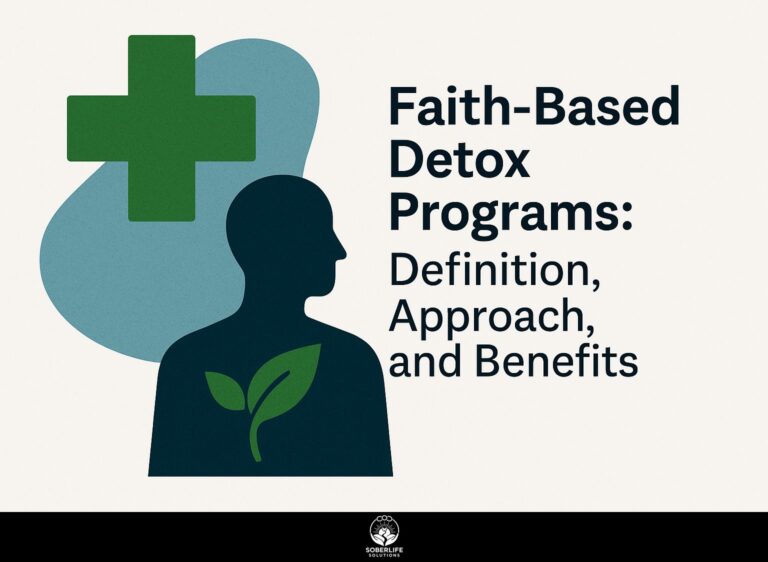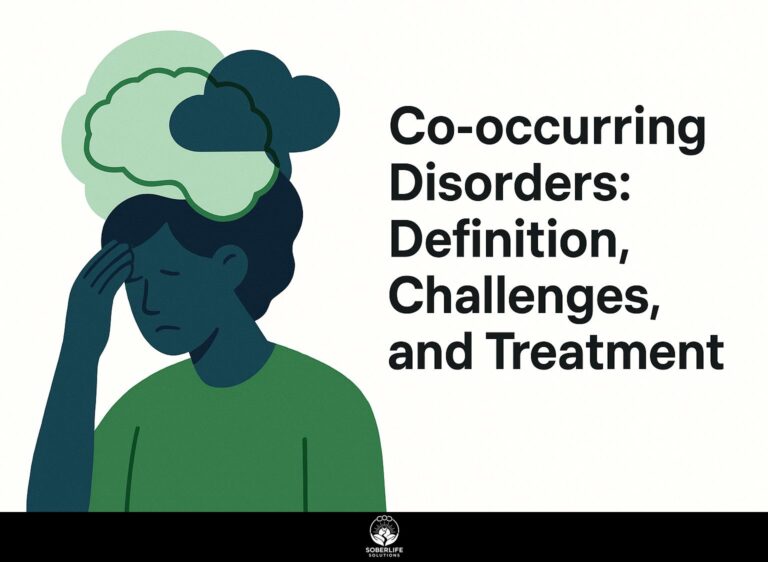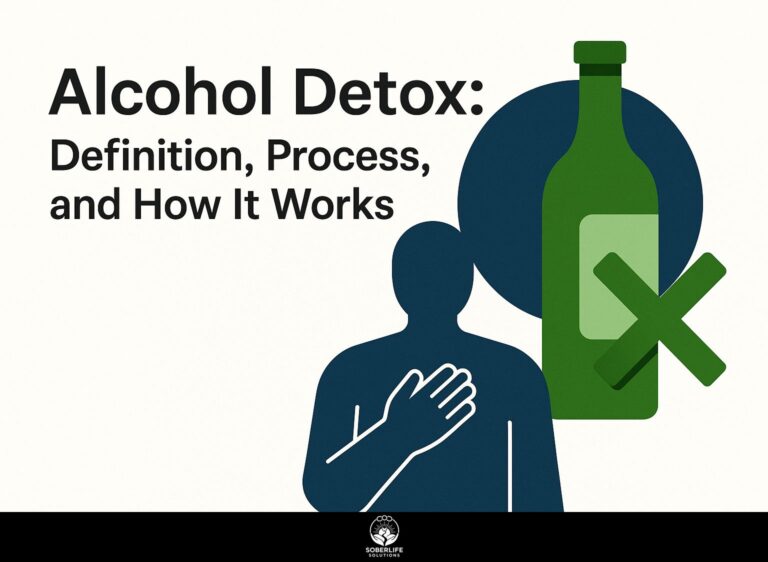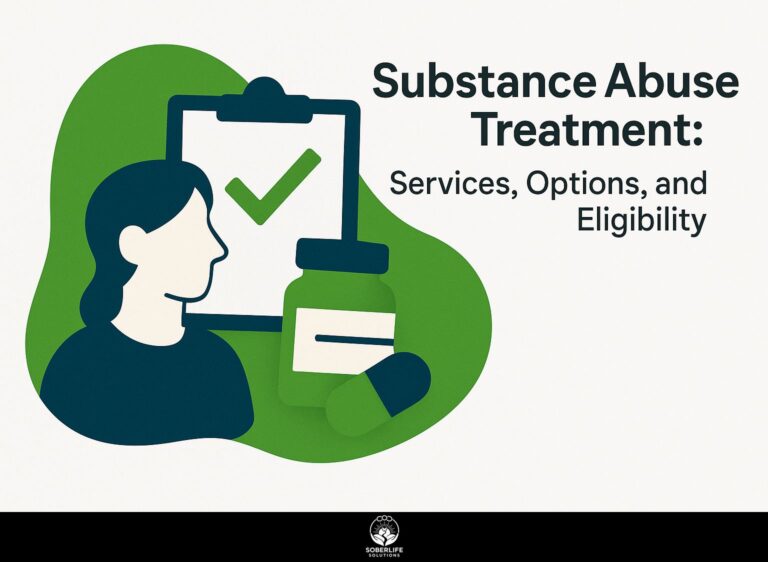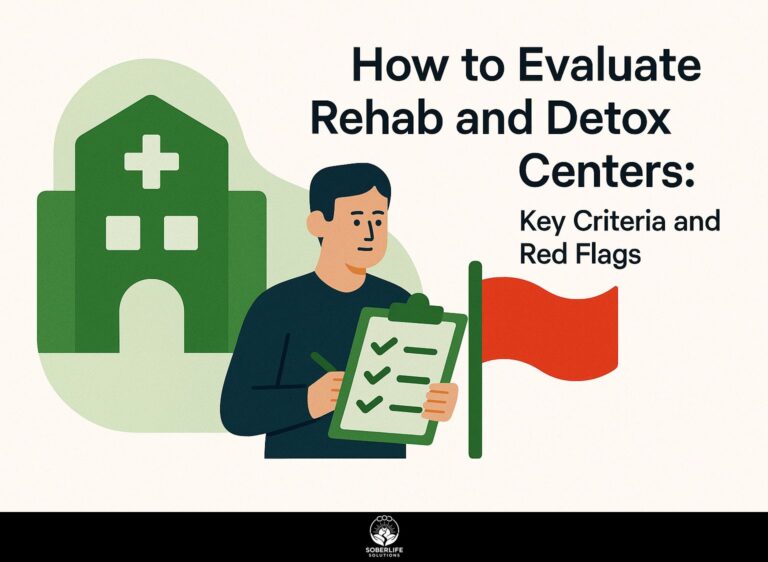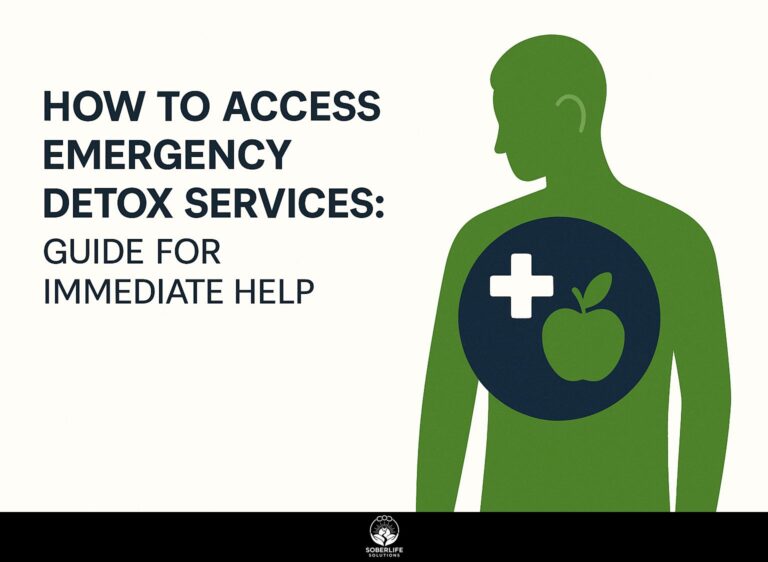Anger Management in Detox: Techniques and Outcomes
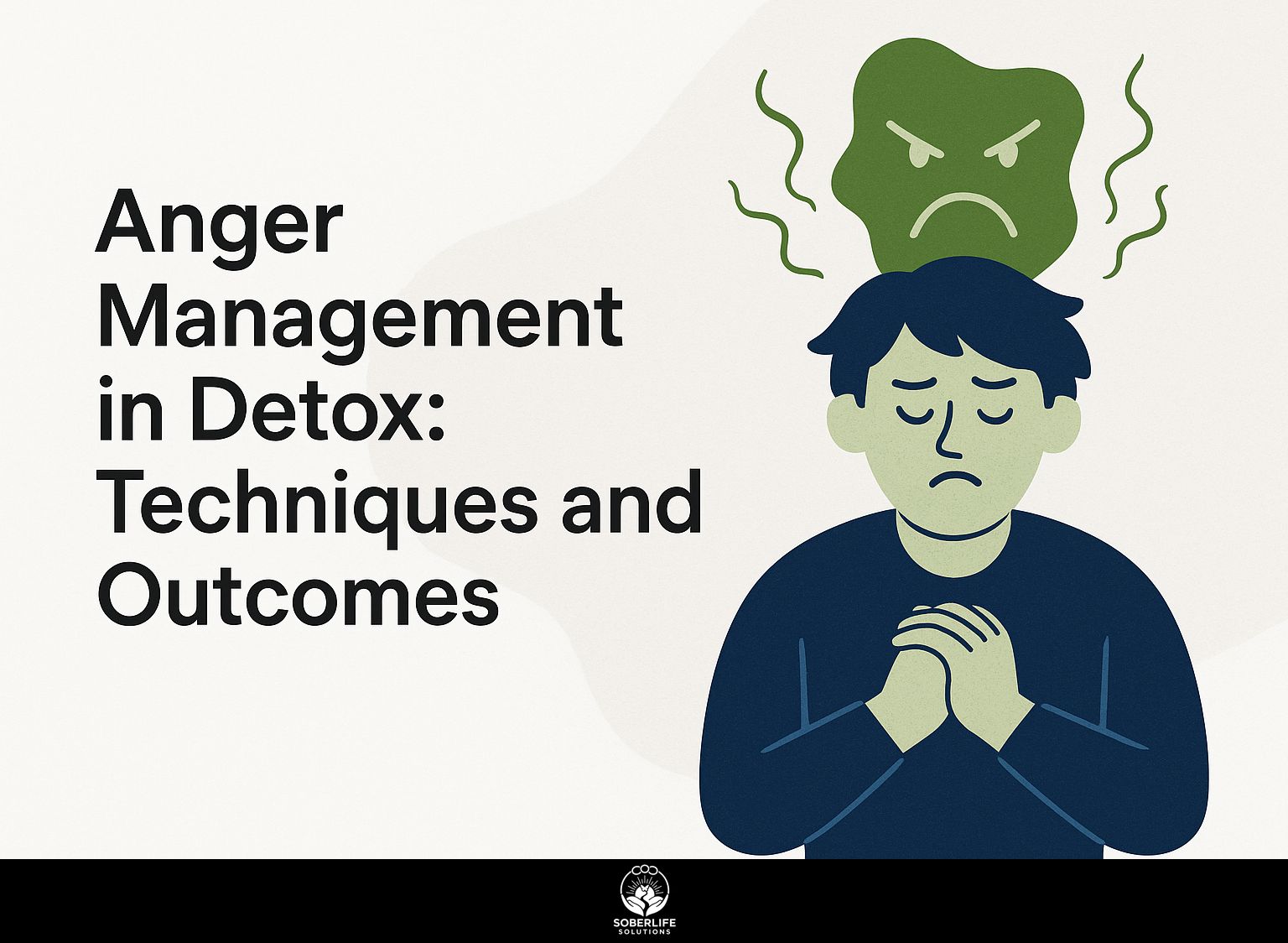
Managing anger is an important part of detox for people recovering from addiction. Since emotional problems often come up during this difficult time, learning to deal with anger can help avoid situations that might cause a relapse. This article discusses practical ways for people in detox to manage their emotions in a healthier way. Learn how controlling anger can improve your recovery path and lead to longer-lasting benefits for your health.
Key Takeaways:
Understanding Anger in Addiction
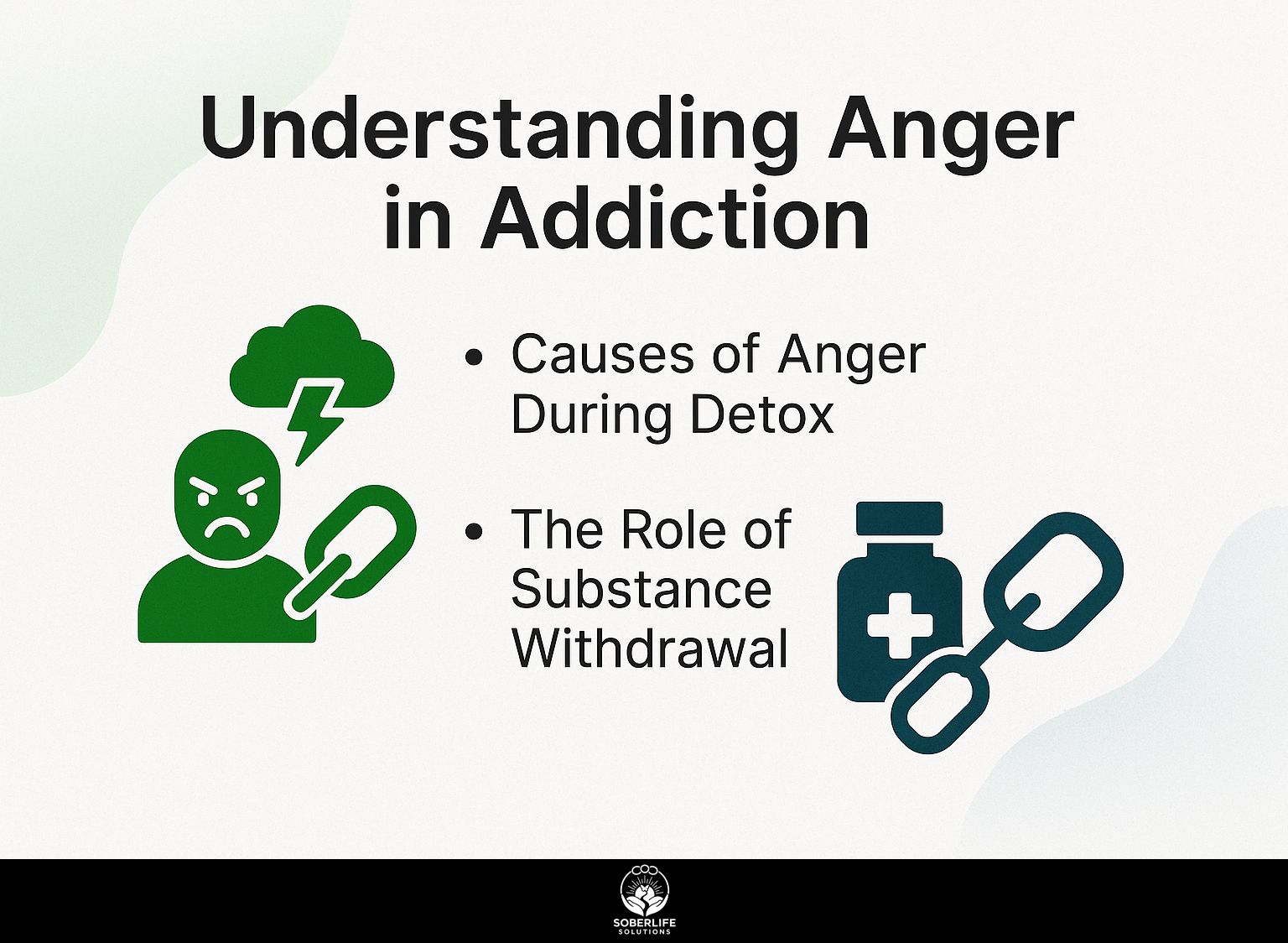
Knowing what leads to anger when dealing with addiction is important for treatment and recovery. According to insights from Mind, substances like drugs and alcohol can have profound effects on mental health, often exacerbating emotional responses such as anger. Understanding the signs and coping strategies for emotional relapse can be an essential part of managing these challenging emotions during recovery.
Causes of Anger During Detox
Various reasons can lead to anger during detox, such as situations that cause relapse and hidden trauma that emerge during withdrawal.
To effectively manage these feelings, individuals should start by identifying specific triggers:
- Journal your emotions daily to pinpoint consistent irritants;
- Practice mindfulness or meditation to help ground yourself in the moment;
- Reach out to a support group, where shared experiences can combat isolation.
Incorporating breathing exercises, such as the 4-7-8 technique, can also help in calming immediate anger responses. These strategies help people become more aware of themselves and provide them with effective methods for managing emotions during their detox process.
The Role of Substance Withdrawal
Substance withdrawal significantly increases anger because people experience strong cravings and mental discomfort.
When someone stops using a substance, changes in the brain’s chemicals can make them more irritable and frustrated. For instance, a study indicated that around 60% of individuals undergoing opioid withdrawal reported significant cravings, which often triggered aggressive outbursts (as highlighted in a recent publication by ScienceDirect).
Cravings can spike cortisol levels, heightening emotional responses, including anger. Techniques such as mindfulness meditation and cognitive behavioral therapy have been shown to effectively manage these emotions.
Research suggests that engaging in physical activity can also reduce cravings by up to 30%, providing a constructive outlet for pent-up energy and frustration.
Techniques for Managing Anger
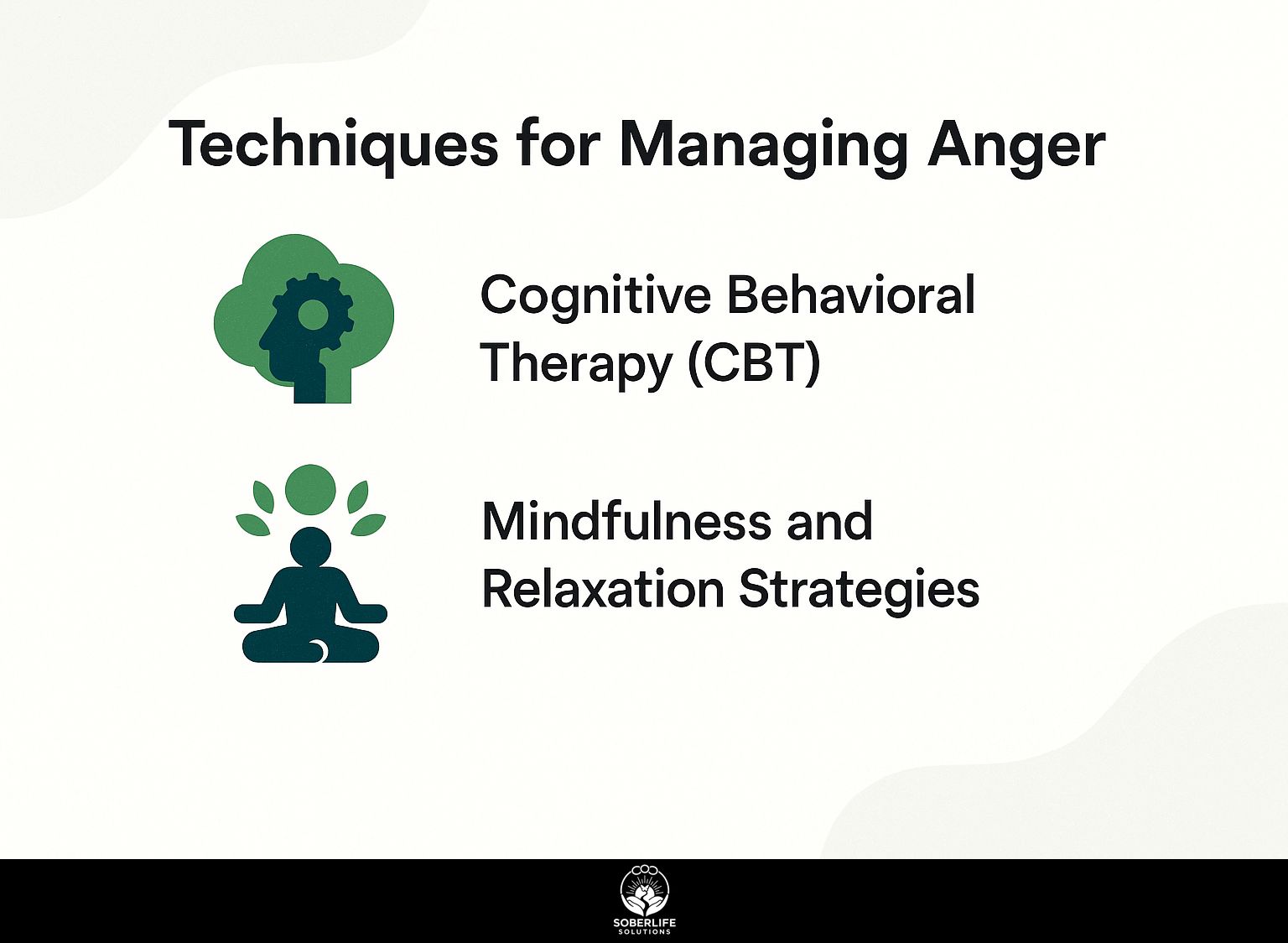
Using effective methods to control anger can greatly improve emotional health for people in detox. For an extensive analysis of this trend, our comprehensive study on EMDR Therapy explores its process and effectiveness in detox, offering practical strategies to manage emotions.
Cognitive Behavioral Therapy (CBT)
Cognitive Behavioral Therapy (CBT) is an effective method that helps people recognize and change negative thinking that leads to anger.
CBT involves three key components:
- identifying triggers that provoke anger,
- reframing negative thoughts associated with these triggers,
- developing coping strategies.
To implement CBT techniques, start by keeping a journal to track your emotions and situations that escalate anger. Next, challenge your negative thoughts by asking yourself if they are rational or if there are alternative, more positive interpretations.
Practice coping strategies such as deep breathing or counting to ten. For more help, consider finding a licensed therapist who specializes in CBT. Resources like Psychology Today can help you find one close to you. For self-help techniques, you can explore comprehensive guides available online, such as those provided by Every Mind Matters.
Mindfulness and Relaxation Strategies
Mindfulness techniques are effective in promoting emotional regulation and reducing anger through focused breathing and relaxation methods.
To effectively practice mindfulness, consider incorporating specific exercises into your daily routine.
- Start with deep breathing: find a comfortable position, inhale deeply for four counts, hold for four, and exhale for six.
- Next, try progressive muscle relaxation by tensing and relaxing each muscle group sequentially, which helps release physical tension.
- For guided experiences, apps like Headspace offer structured sessions starting at $12.99 per month, perfect for beginners.
Regularly practicing these methods can lead to measurable improvements in emotional stability, including a noticeable reduction in anger outbursts in as little as a few weeks.
Behavioral Interventions
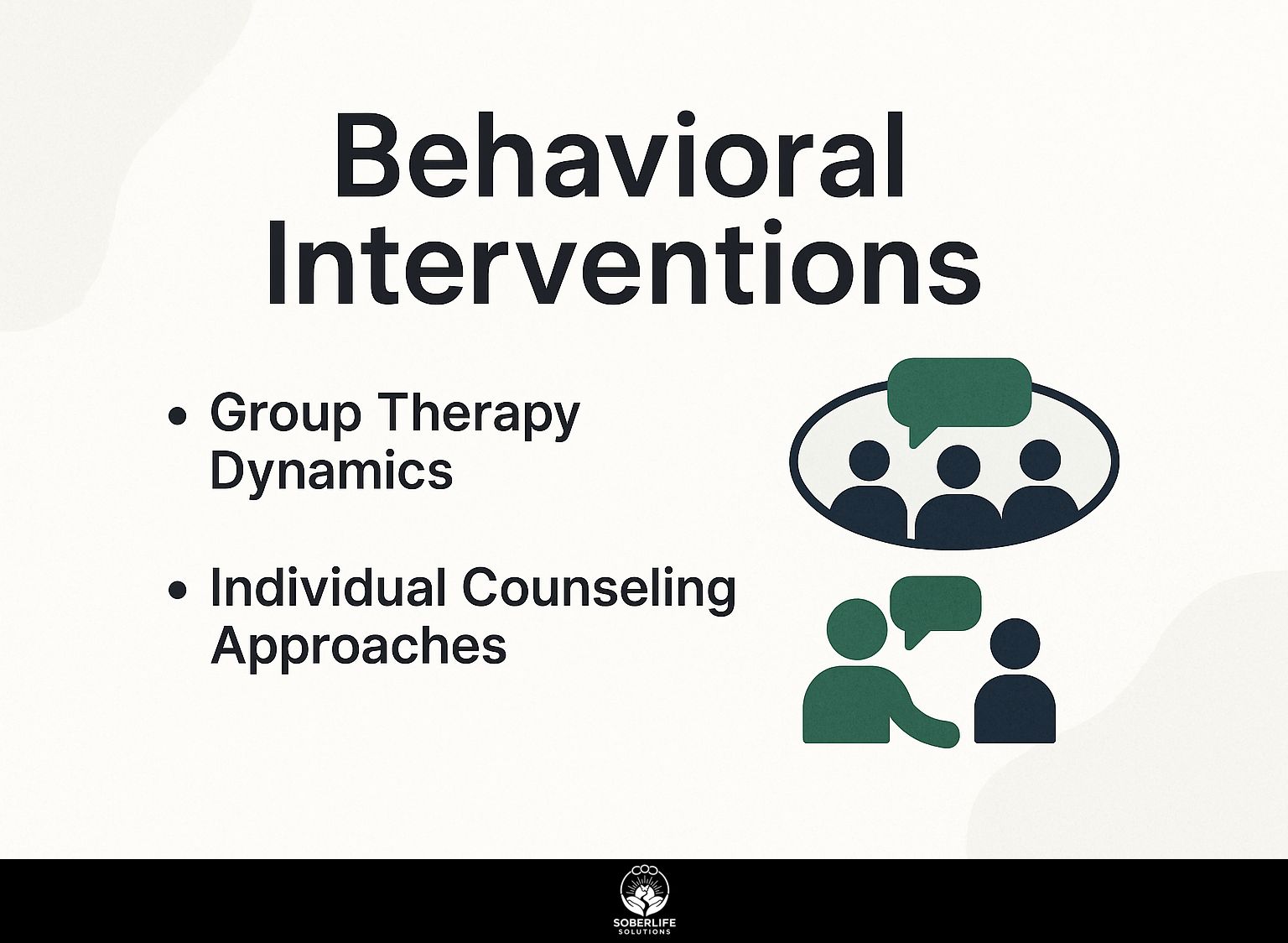
Behavioral methods, like group therapy and one-on-one counseling, are important for managing anger in detox environments. As mentioned in our analysis on the role of detox centers in alcoholism recovery, these environments are structured to support emotional stability, helping individuals to better cope with anger management during the detox process.
Group Therapy Dynamics
Group therapy provides a supportive place where people can talk about their experiences and learn from each other about handling anger.
Participants often share personal stories, which affirm their emotions and motivate others to speak freely. This dialogue helps in building community and trust.
Group therapy teaches helpful ways to deal with problems, like deep breathing exercises or changing negative thoughts.
Research shows that engaging in group therapy significantly reduces relapse rates; for instance, studies indicate a 50% lower chance of relapse among participants compared to those not in therapy.
Through mutual support, individuals develop resilience and better emotional regulation skills.
Individual Counseling Approaches
Individual counseling offers focused help and specific plans to deal with anger problems linked to addiction.
Counselors often employ techniques such as Cognitive Behavioral Therapy (CBT) to help clients identify and challenge distorted thoughts that trigger anger.
For example, clients might keep a journal to track their thoughts and feelings, enabling them to spot patterns over time.
Mindfulness practices are also effective, teaching clients to recognize emotional triggers and respond calmly rather than reactively.
Incorporating role-playing exercises helps individuals practice appropriate responses to anger-inducing situations, promoting healthier emotional management in real life.
This complete method greatly improves the client’s ability to handle addiction and anger problems.
Outcomes of Effective Anger Management
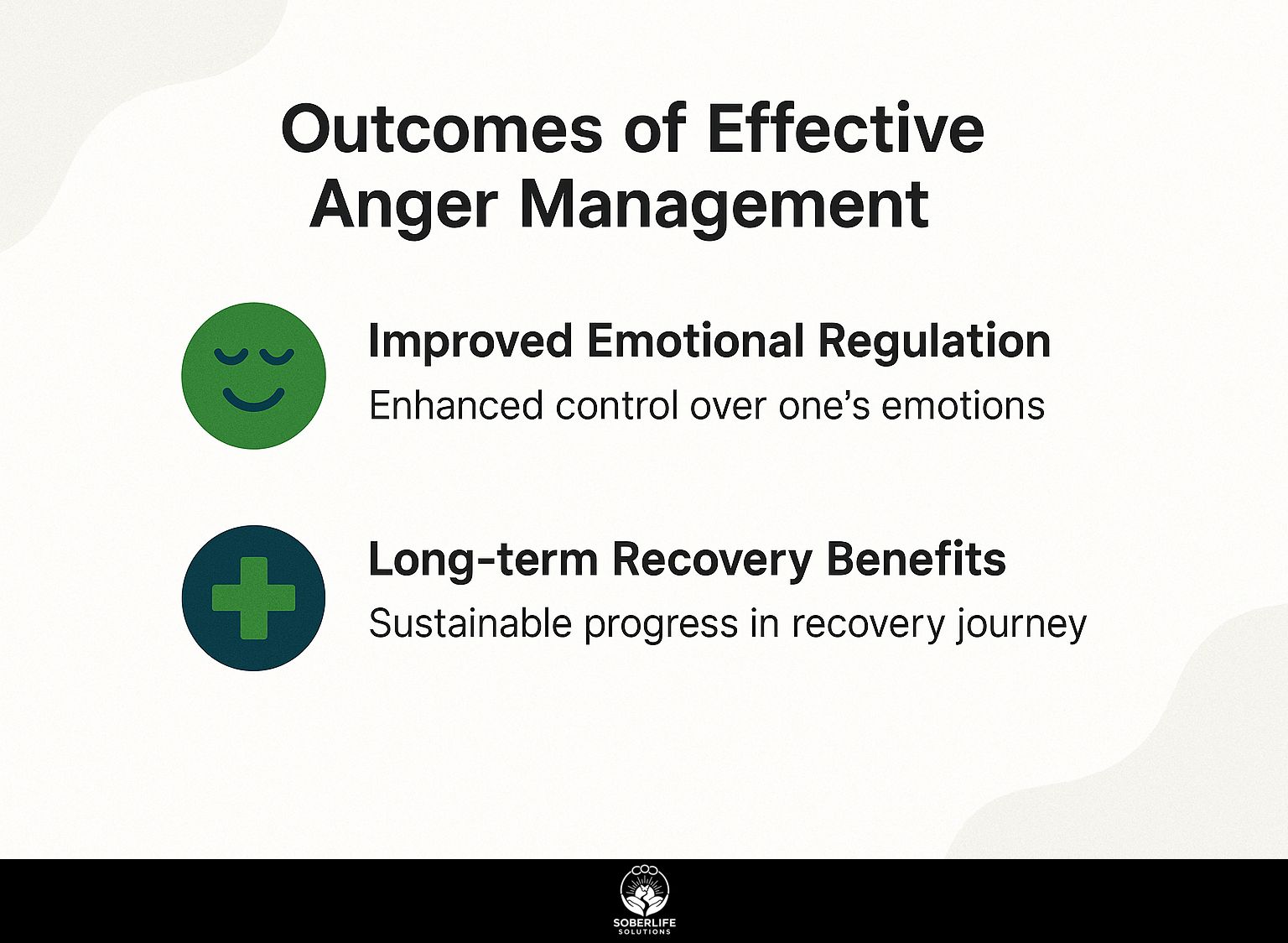
Managing anger well during detox leads to better control of emotions and increases the chances of a successful recovery. For a deeper understanding of how emotional health influences recovery, explore our comprehensive guide on coping mechanisms for addiction recovery.
Improved Emotional Regulation
Improved emotional regulation can minimize anger outbursts, creating a more stable environment for recovery.
Using structured programs like Cognitive Behavioral Therapy (CBT) can greatly improve emotional control skills. For example, participants report up to a 60% reduction in anger incidents after 12 weeks of guided sessions.
Tools such as journaling, meditation apps like Headspace, and anger management classes further support individuals in recognizing triggers and employing coping strategies.
Testimonials show that people who used these resources improved their anger management and learned better communication skills, leading to more positive relationships at home and at work.
Long-term Recovery Benefits
The long-term benefits of effective anger management extend beyond detox, influencing overall treatment challenges and recovery success.
Research indicates that individuals who engage in ongoing anger management programs experience significantly lower relapse rates and improved emotional health.
For instance, a study by the Journal of Substance Abuse found that participants who practiced anger management techniques had a 30% reduction in relapse incidence over two years.
Case studies provide more examples: one participant, after attending a 12-week program, reported less anger and better relationships and job stability.
This emphasizes the important role of continuous help and changing strategies for lasting improvement.
Frequently Asked Questions
What is anger management in detox and why is it important?
Anger management in detox involves methods and plans that help people handle and deal with anger while they are going through detox. This is important because detox can be a challenging and emotionally charged time, and anger can be a common and strong emotion that can hinder progress and affect overall outcomes.
What are some techniques used for anger management in detox?
Some common techniques used for anger management in detox include deep breathing exercises, mindfulness meditation, cognitive-behavioral therapy, and anger journaling. These techniques can help individuals identify triggers, manage intense emotions, and develop healthier coping mechanisms.
Can anger management in detox have a positive impact on overall outcomes?
Absolutely. Managing anger during detox can lead to better overall outcomes as individuals are able to stay focused, calm, and motivated to complete the process. Effective anger management can also improve relationships, reduce stress levels, and decrease the likelihood of relapse.
Is anger management in detox only for individuals with substance use disorders?
No, anger management techniques can be beneficial for anyone going through the detox process. This includes individuals with substance use disorders, as well as those going through medical detox, such as for prescription medications or other substances.
How can I add anger management methods to my detox plan?
Work with a therapist or counselor to create an anger management plan that suits your needs and situation. You can add these techniques to your everyday habits and use them during tough times of detox.
Are there any possible difficulties with managing anger during detox?
Like any new skill, managing anger in detox may take time and practice to see significant improvements. It’s possible to face difficulties or slip-ups when dealing with anger, but keep practicing methods and reach out to experts and people close to you for help.

